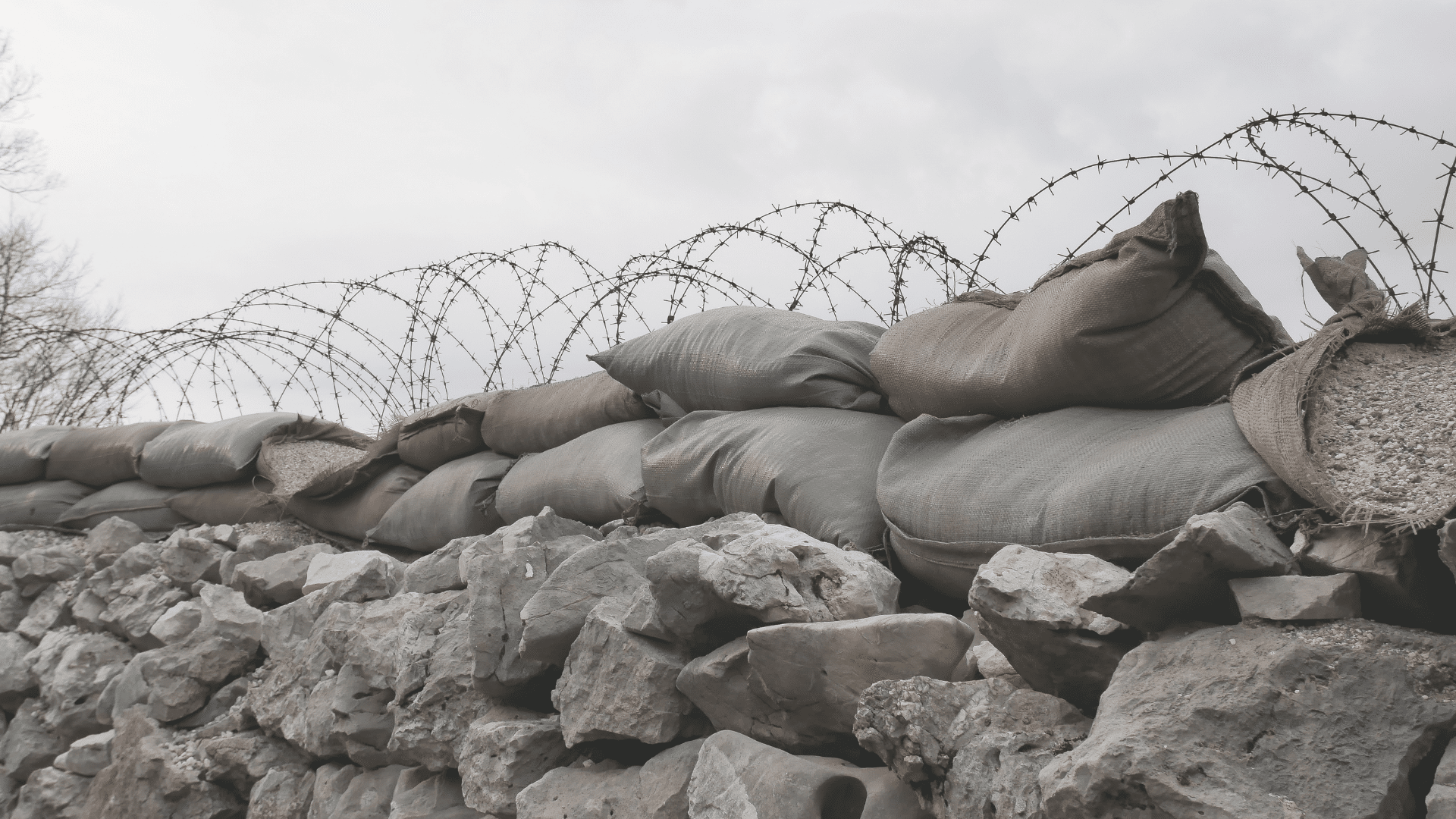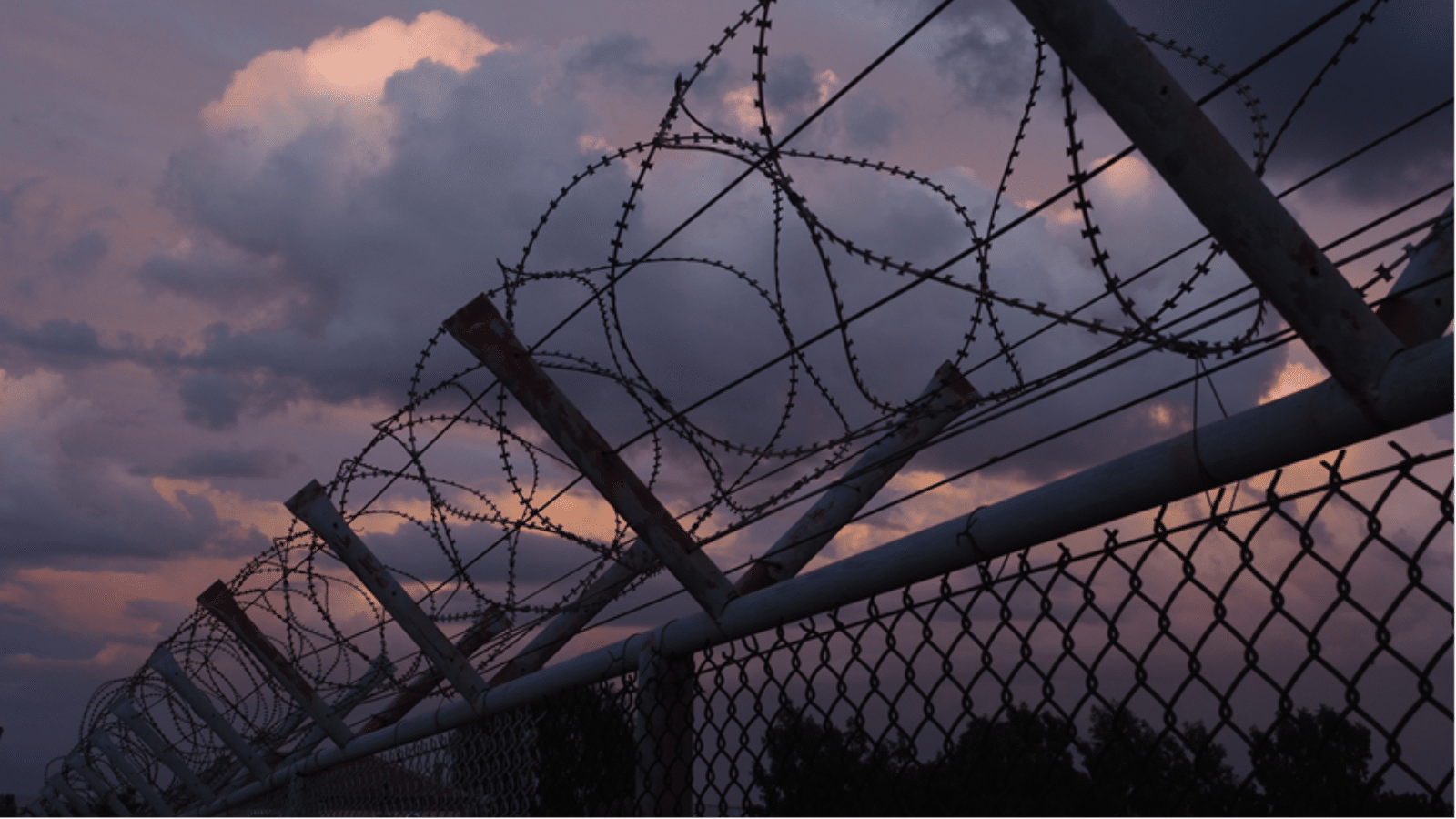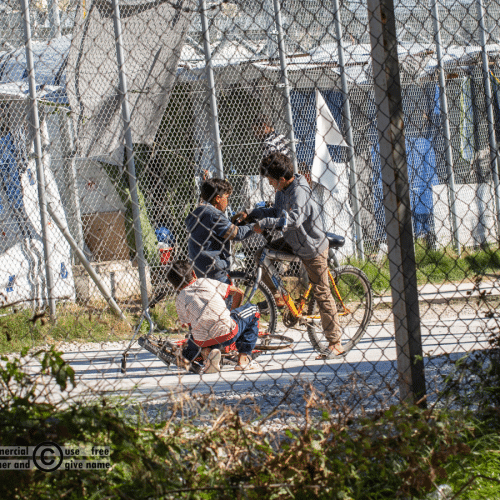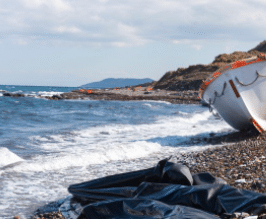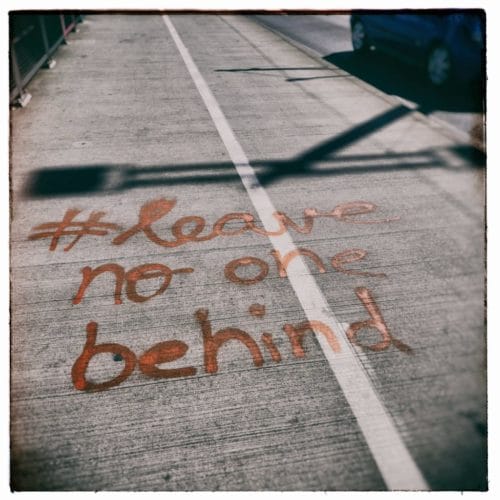The Moria refugee camp on the Greek island Lesvos became a symbol of Europe’s containment policies and inhumane treatment of asylum seekers from the Middle East and Africa. Before the camp burned to the ground in September 2020, it was infamous for its appalling living conditions, lack of police protection and slow and incomplete bureaucratic procedures. By design, Moria was a dystopian and dysfunctional environment characterised by violence, waiting, mud, garbage, and an awful stench of raw sewage running through the camp. The camp’s problems were highlighted by a series of avoidable deaths resulting from these living conditions, including that of a newborn baby from dehydration in 2019, and those of several adults and children following carbon monoxide poisoning, hypothermia, fire outbreaks and violent brawls. Since 2016, Doctors Without Borders also repeatedly warned of a “mental health crisis” on Lesvos, noting that adults and children as young as six years old were self-harming and suffering from panic attacks and anxiety. Residents of the camp typically referred to the place as a prison or living hell. “Moria is killing me slowly,” I often heard people in the camp say, while criticising Europe for its shallow commitments to human rights and equality.
However, despite its horrendous living conditions, Moria was not only a place of destitution. The formal camp, and the informal spillover tent camp dubbed “the jungle”, also fostered community and entrepreneurship. Moria was first and foremost a place where people were made to wait, suffer and fear, but it was also a place where one could get a new haircut, make friends, and buy delicious naan bread straight from a makeshift oven. Importantly, Moria also fostered solidarity and resistance, as people in the camp organised themselves to elect their own representatives, clean up the camp and improve their living conditions, run a school, produce and distribute masks and information during Covid, and protest to demand rights, freedom and recognition.
In the camp that replaced Moria, Mavrovouni, many of these activities are curtailed, as asylum seekers in the camp face increasing surveillance and repression. Moreover, Greek authorities have built a new camp on the island located in a remote pine forest. While the construction of the camp is facing strong local opposition, it was supposed to open in 2023 and risk contributing to further criminalising and isolating asylum seekers on the European borderland.
In a recent podcast, I spoke to Doctors Without Borders fieldworker, Katrin Glatz Brubakk, about her recent mission to Lesvos and impressions from assisting refugees on the island. Katrin, a child psychologist specialising in trauma and Assistant Professor at NTNU, ended up, somewhat accidentally, as a humanitarian volunteer on Lesvos during the height of the “refugee crisis” in 2015. She was participating in a conference on the island that summer but found it “impossible not to help” when she learned about the large number of refugee boats arriving on the shorelines nearby. Since that summer, Katrin has been on Lesvos multiple times in her capacity as a child psychologist for Doctors Without Borders. She is disappointed with Europe and the Greek authorities who, after the devastating fire in September 2020, failed to fulfil promises of “No more Morias.”
After the fire, the more than 12,000 residents of the destroyed camp were forced to sleep on the streets. Greece declared a state of emergency, deployed its military forces, and rapidly built a new tent camp, Mavrovouni, to host the nearly 8,000 asylum seekers who were not lucky enough to be evacuated to the mainland. The new camp, which is run by the Greek Ministry of Migration, was supposed to be more dignified, safer and above all a temporary solution. However, nearly three years later, Mavrovouni is still operating and has been dubbed “new Moria” or “Moria 2.0” by many refugees, activists and aid workers on the island. Like its predecessor, Mavrovouni quickly became characterised by its dismal living conditions, including a lack of electricity, running water and sanitation. Due to its location by the sea, the camp is also exposed to harsh weather conditions, including heavy storms and rain, which regularly flood the flimsy summer tents and rub halls where people live.
Since Mavrovouni first opened as an emergency solution in 2020, new facilities and shelters have improved the camp, which, according to people living and working there, is better organised than the former Moria camp. Moreover, Mavrovouni has better security than Moria, which means there are considerably less brawls or incidences of violence. Refugee-led organisations like the Moria White Helmet also work alongside other NGOs to clean the camp and provide recreational activities and informal education. Nevertheless, humanitarian workers like Katrin strongly object to the European Commission’s representation of the camp as a “welcoming space for asylum seekers.” First of all, there is still an absence of basic and dignified amenities and services, including adequate sanitation, private shelter and formal schooling for children. Second, women do not have access to properly segregated and secure washing facilities and just like in Moria, they report being afraid of using the toilet during night. Third, there is increased surveillance and more restrictions on movement, and residents speak of institutional apathy, intense control and harassment from police and private security forces.
Significantly, this move towards increasing restrictions and surveillance of asylum seekers on Lesvos follows legal and policy developments in both Europe and Greece. When the EU-Turkey Statement was agreed in 2016, “geographical restrictions” were imposed on asylum seekers, preventing them from leaving the islands and requiring them to stay in Reception and Identification centres like the Moria camp. Later, Greece issued a new asylum law (in effect from January 2020), increasing authorities’ discretionary powers to restrict asylum seekers’ freedom of movement. Moreover, the EU proposed and funded the establishment of “Closed Control Access Centres” to replace the former “hotspot approach” on the Greek islands. Despite rumours, these centres are not fully closed, but so-called “closed and controlled”, blurring the line between detention and the limited freedom of movement accorded to asylum seekers following the European Reception Conditions Directive. Inside the centres, refugees are subject to permanent surveillance, high degree of control and supervision, and invasive security checks and searches. Since the centres are located in remote and isolated areas, residents also experience increased social exclusion and marginalisation.
After the opening of a new camp on Lesvos was postponed, Mavrovouni was converted into a Closed Control Access Centre in late 2022. The International Rescue Commission (IRC) found in a 2020 report that the conditions in the Closed Control Access Centres in Greece have severe impacts on the wellbeing of asylum seekers hosted there, creating feelings of imprisonment and criminalisation, and gravely harming their mental health. In 2022, 93% of people supported by the IRC’s mental health and psycho-social support programmes in Lesvos and Samos experienced anxiety or depression-related symptoms, while a worrying 50% showed symptoms of suicidality. Katrin’s experience as a psychologist assisting people on the island supports these findings. In the podcast, she describes Mavrovouni as like entering a black-and-white movie, with surprisingly little sound, few colours, no official places to gather and socialise and “even less vitality and hope” than what she detected in the former Moria camp. Like the IRC study, Katrin assesses that life in Mavrovouni has devastating impacts on the mental health of children and adults living in the camp, most of whom already must cope with traumas endured in their country of origin and on their flight to Europe. She explains that traumatised children react differently to prolonged insecurity. Some direct their feeling and frustrations outwards, acting out or harming themselves or others, sometimes banging their heads against the walls or floor to vent their intense emotions. Others are quiet, constantly on alert or apathetic. According to Katrin, these children typically spend all their energy on being afraid and have stopped playing and learning.
Katrin is deeply worried about the long-term psychological impacts for children in the camp and strongly sympathises with refugee parents who are extremely concerned about the future and wellbeing of their children. However, there are not only children who suffer from Europe’s harsh and unwelcoming refugee policies. In the podcast, we also address the stigma male asylum seekers in particular experience in Europe. Moreover, Katrin observes that the current warmth and hospitality shown toward Ukrainian refugees in Greece and elsewhere has added to non-European refugees’ “intense feelings of being unwanted.”
While Doctors Without Borders has taken a principled decision to work outside the camp, the Norwegian humanitarian organisation A Drop in the Ocean provides regular laundry services to people living in the camp and monitors the situation closely. The organisation reports that the increasing number of asylum seekers arriving on Lesvos in September and October 2023 have doubled the population inside Mavrovouni and exacerbated the already dire situation. In October, the small camp housed nearly 5,000 people, some of whom were forced to sleep on the ground due to a shortage of beds and mattresses. Because of the overcrowded conditions, women, men and children have been placed in the same tent without privacy and there is increasing risks of scabies and other diseases. Asylum seekers on Lesvos are also currently experiencing further bureaucratic delays, which, according to A Drop in the Ocean, have aggravated their feelings of helplessness and despair. Furthermore, since June 2023, those who have either received or been rejected asylum are no longer eligible to receive food from the Greek authorities, which has led to conflicts over scarce resources, food insecurity and increasing homelessness.
What explains this problematic development and who is to blame? Aid workers I have talked to provide two different –though not mutually exclusive– reasons. The first focuses on the inability of the EU to come up with a sustainable mechanism for the sharing of responsibility for the registration and housing of asylum seekers. Without a proper mechanism for relocation and shared responsibility, border countries like Greece are unable to cope with the persistent –and today growing– humanitarian crisis. The second explanation describes the current conditions as intentional: a deliberate attempt on behalf of EU and Greek authorities to create a so-called hostile environment to deter more people from seeking asylum in Europe. Following this logic, the mistreatment of asylum seekers on Lesvos and elsewhere can be described as a “politics of exhaustion” defined by Marta Welander as a “sophisticated technology of border control and mobility governance, which aims to deter, exclude, and control through the mental and physical exhaustion of individuals”.
Regardless of blame and intent, the conditions for refugees on Lesvos are unlikely to improve in the near future. To conclude this blog post, I highlight two developments that warrant further attention. First, a new Closed Control Access Centre on Lesvos named Vastria was supposed to open during 2023, however, strong local opposition and repeated warnings from refugee advocates, humanitarian organisations and environmentalists concerned with the potential of wildfires have disrupted the process. Like the other Closed Control Access Centres in Greece, Vastria has a prison-like infrastructure, which will reinforce residents’ experience of being treated as criminals rather than people with legitimate needs and rights. If asylum seekers on Lesvos are moved to Vastria, its remote location will also lead to more isolation and exclusion, further infringing on their ability to access services and take part in local life on the island. In August, the Greek Supreme Administrative Court revoked the construction permit for the proposed access road, leading some to believe the government’s plan has been scuppered. However, according to my contacts, not even Greek government officials know whether Vastria will ever open, and what the full consequences of this decision will be for asylum seekers and organisations on the island.
Second, the EU’s new pact on migration and asylum –which negotiations are set to conclude this spring– is unlikely to involve a tangible change in European migration governance. The main responsibility for receiving refugees will still be placed on border states like Greece, which appears both unwilling and unable to cope with this unfair arrangement. In a recent report, IRC also warns that the proposed pact creates new loopholes to ignore human rights obligations, for instance, through reduced safeguards and increased use of detention, even of younger and unaccompanied children. Regardless of whether Vastria becomes operational or not, this will have grave consequences for asylum seekers on Lesvos and elsewhere.


